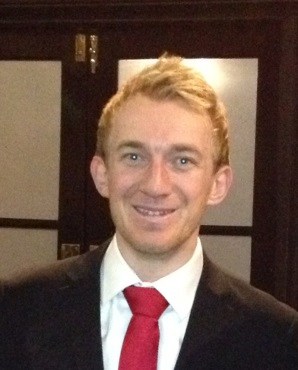
Step forward Michael Jenkins, IChemE's Ashok Kumar Fellow 2015, whose three-month placement with the UK Parliamentary Office for Science and Technology (POST) saw the publication of his in-depth parliamentary briefing titled Access to Water and Sanitation.
In the report, Jenkins highlights some key challenges in achieving universal access to clean water and sanitation by 2030, and emphasises the importance of sustainable global access to water, sanitation and hygiene facilities (WASH).
The Student Engineer got in touch with Michael to talk about his academic career, the role of engineers and his aspirations.
Hello Michael, can you tell us where you studied as an undergraduate, and what you studied whilst you were there?
I did my undergraduate degree in biochemical engineering at UCL, looking at the manufacturing processes involved in complex biological products.
Did you undertake any placements during your days as an undergraduate? If so, what did you do, for how long, and what key lessons from it will you take into your career?
I didn't undertake any industrial placements, but I carried out a year abroad as part of the Erasmus scheme in Lund University, Sweden. I think the key lesson I learned whilst there was adaptability as a result of having to continue my studies whilst embracing completely new surroundings.

We know you’re currently a postgrad at UCL but can you tell us how Pfizer are helping with your EngD and your relationship with the company in general.
Pfizer are developing a number of products in the cell therapy space and they help us to leverage representative case studies that will form my thesis. They also provide support and expertise pertaining to the science and manufacturing processes that might support such products. In turn we can provide them with valuable insights into their production processes and appraise these from an economic standpoint.
Can you tell me more about the Ashok Kumar Fellowship? How did you become aware of it? What did the application process entail, and what tips would you give other students who might want to apply for the placement starting in 2017?
It was mentioned in a departmental email after a previous Fellow, Iwan Roberts was awarded the fellowship. I've always had a keen interest in the translation of science into public policy and was immediately interested in applying for the fellowship myself.
My application process entailed writing a 'mock briefing', for which I wrote an update on the global fight against malaria. I was selected for interview on this basis. This was followed by a very crackly phone interview from Harare as I was out of the country on the proposed interview date! I would strongly encourage anyone with an interest in science and policy to apply, it was a fantastic experience.
My advice to future applicants would be keep up to date with current science and technology news, especially those which have a direct impact on public policy. Also, if selected for interview, have a read up on the role of parliament, both generally and where POST fits into the remit of parliament.
You’ve recently completed a secondment with POST. How did that come about and how will it help further your career goals?
I think the placement at POST helps develop very valuable skills for all walks of life, not just policy. The placement requires rapid assimilation and dissemination of technical information to non-specialists. I've come out of the placement with far better written communication skills than when I started.
Still with POST, in what ways do you think politicians listen to – and act on - the advice of engineers and scientists?
I don't know if I can speak for science and engineering as a whole, but in my experience politicians find POST very valuable. My briefing was heavily referenced in a parliamentary debate the day after it was published online. However, I think scientists need to communicate to non-specialists more often, and with a bit more clarity than has been the case previously. This will help engage politicians in science policy debates and enable them to act better on expert advice.
The Student Engineer has spoken to students and early career graduates who want to use their engineering and science skills to make a positive impact on the world. Are you similarly motivated? If so, what changes do you want to effect and how do you think you’ll achieve that goal?
I think that's a secret goal of all scientists and engineers! So yes I am. I'm fortunate in that I work in a sector of biochemical engineering that deals with novel therapeutic products, such as cell therapies. I like to think that by helping to optimise the manufacturing processes for such products, in my own incremental way, I'm helping these therapies gain access to market at costs which can be supported by public healthcare services. I like to think I play a small part in making people's lives better in that (quite roundabout) sense.
Finally, where do you see yourself in 5 years time?
Good question! I like the idea of working in policy in the future but I do enjoy process engineering, so I hope to build a career in either business development In the cell therapy sector, or in a policy role related to the regenerative medicine industry.
Thank you , Michael!





Nanogenerator consumes CO2 to generate electricity
Whoopee, they've solved how to keep a light on but not a lot else.